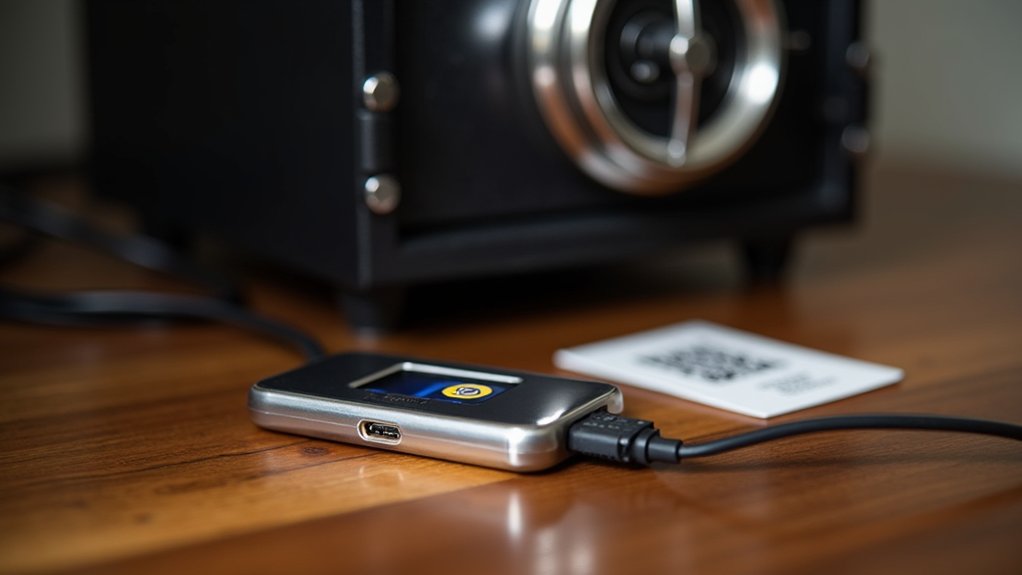Investors can purchase JEWEL tokens through multiple channels, including centralized exchanges like MEXC Global and Coinex, which require account registration and KYC verification. Alternatively, decentralized exchanges offer KYC-free access but necessitate compatible cryptocurrency wallets and sufficient Ethereum for gas fees. Crypto wallets with built-in swap functionality present a convenient option despite higher fees, while peer-to-peer services provide direct transactions with escrow protections at approximately 17.74 JEWEL per dollar. The following sections explore each acquisition method in greater detail.

Numerous cryptocurrency enthusiasts seeking to diversify their digital asset portfolios have turned their attention toward JEWEL, a token gaining traction in the decentralized finance ecosystem. Prospective investors can acquire JEWEL through multiple channels, each presenting distinct advantages and considerations regarding security, convenience, and cost-effectiveness.
Centralized exchanges (CEXs), like MEXC Global and Coinex, offer structured platforms where users must complete account registration, including Know Your Customer (KYC) verification procedures that typically escalate in requirements proportionally to transaction volume. The acquisition process on CEXs initially involves funding accounts via debit cards, bank transfers, or third-party payment processors before exchanging fiat currency directly for JEWEL or, more commonly, purchasing intermediate stablecoins like USDT as a preliminary step. Popular exchanges like Coinbase or Binance provide user-friendly interfaces for cryptocurrency purchases with various payment options. It's advisable to set up Two-Factor Authentication on these platforms for enhanced account security.
Navigating centralized exchanges requires diligent KYC compliance before accessing JEWEL through fiat gateways or stablecoin intermediaries.
Alternatively, decentralized exchanges (DEXs) provide JEWEL access without KYC mandates but necessitate users to prepare compatible cryptocurrency wallets, like MetaMask, pre-loaded with sufficient Ethereum to cover gas fees intrinsic to blockchain transactions. These platforms require traders to navigate liquidity pools while adjusting slippage tolerance parameters to optimize transaction execution in volatile market conditions.
Crypto wallet amalgamation represents another avenue for JEWEL acquisition, with established solutions like Trust Wallet or Ledger offering built-in swap functionality, though often at premium fee structures compared to dedicated exchanges. Users must prioritize offline storage of wallet seed phrases to mitigate security vulnerabilities associated with self-custody arrangements.
For traders seeking personalized transactions, peer-to-peer (P2P) services, particularly MEXC's P2P marketplace, facilitate direct JEWEL purchases from verified counterparties with escrow protections, offering flexible payment options including bank transfers or linked cards without transaction fees. With the current market price, investors should note that $1 can purchase approximately 17.74 JEWEL tokens, representing a considerable entry point for new participants.
Payment method selection markedly impacts the JEWEL purchasing experience, with instant card transactions available through Visa or Mastercard on select platforms, while SEPA transfers provide fee-free alternatives for European investors.
Regardless of the chosen acquisition pathway, prospective JEWEL holders must carefully evaluate transaction costs, security protocols, and liquidity considerations to determine the most suitable method aligned with their investment objectives and risk tolerance parameters.
Frequently Asked Questions
What Is Jewel Crypto Used for in Defi Kingdoms?
$JEWEL functions like the primary utility token within DeFi Kingdoms, serving multiple essential purposes throughout the ecosystem, including like in-game currency for purchasing NFT assets and enabling DEX transactions.
It also acts as a governance token for voting rights when staked as cJEWEL or sJEWEL.
Additionally, it serves as a liquidity mining instrument generating passive income through Gardens participation.
Furthermore, it functions as a cross-chain enabler between Unity and Avalanche networks, underpinning the game's economic infrastructure and fee distribution mechanisms.
Can Jewel Crypto Be Staked for Passive Income?
JEWEL crypto can be staked for passive income through two primary methods within DeFi Kingdoms: the in-game bank, offering flexible deposits with estimated APYs of 30-50% according to community data, and liquidity pools, which provide potentially higher yields but involve lock-up periods.
These staking mechanisms generate regular rewards for token holders, though investors should consider inflation risks, since ongoing network emissions may dilute returns over time.
What Determines Jewel's Price Fluctuations?
JEWEL's price fluctuations stem from multiple interconnected factors in the cryptocurrency ecosystem.
Supply-demand interactions, including whale activity and circulating supply constraints, establish baseline valuation parameters, while market sentiment drives short-term volatility through speculative trading.
Technical indicators, like EMAs and RSI, provide analytical frameworks for traders to anticipate movements.
Additionally, the token's utility within DeFi Kingdoms and its cross-chain implementation fundamentally influence long-term price trajectories through adoption rates and competitive positioning against similar GameFi projects.
Are There Any Risks Specific to Jewel Investments?
Jewel investments carry specific risks beyond general cryptocurrency concerns, including governance vulnerabilities within DeFiKingdoms' protocol, potential tokenomic imbalances through emission schedule changes, validator concentration risks affecting consensus, cross-chain bridge security exposures if transferring between networks, and ecosystem-dependent value fluctuations tied to game popularity metrics.
Additionally, investors face liquidity constraints in DeFi pools during market stress, making rapid position unwinding potentially costly through increased slippage and impermanent loss.
Does Jewel Have Limited Supply or Tokenomics Features?
JEWEL operates with a hard cap of 125 million tokens, exhibiting deflationary characteristics through permanent burns via gameplay mechanics and transaction fees.
The token's supply has been fully minted with no further emissions following the termination of unity blockchain distributions on September 1, 2022.
Previously locked tokens underwent conversion to maintain tokenomic balance, while the fixed supply, combined with governance utility and staking rewards, creates long-term scarcity-driven value potential.









